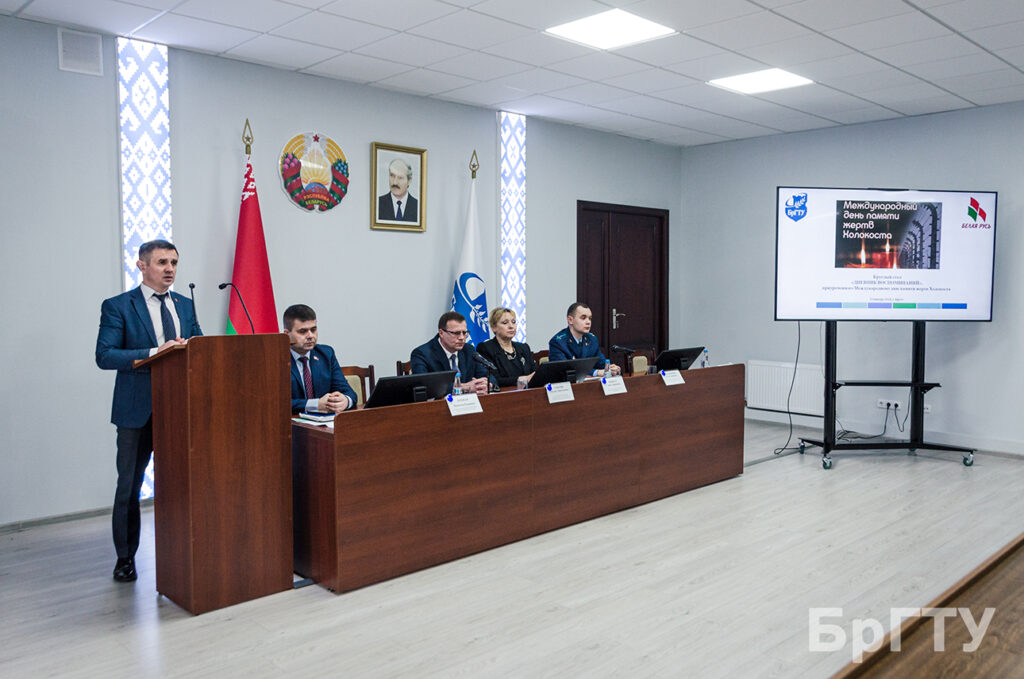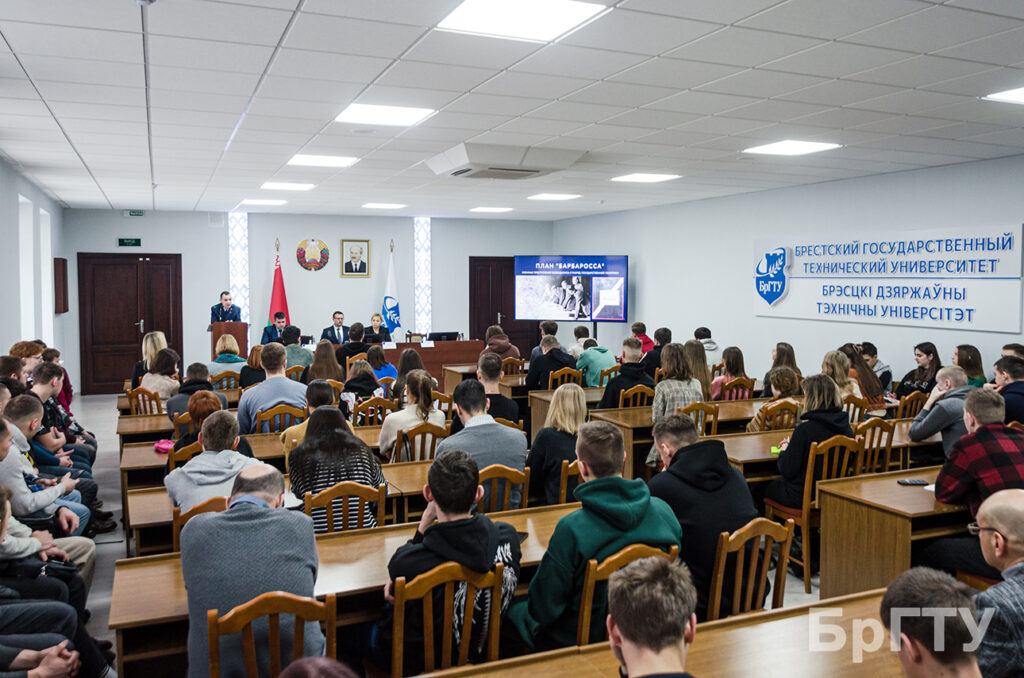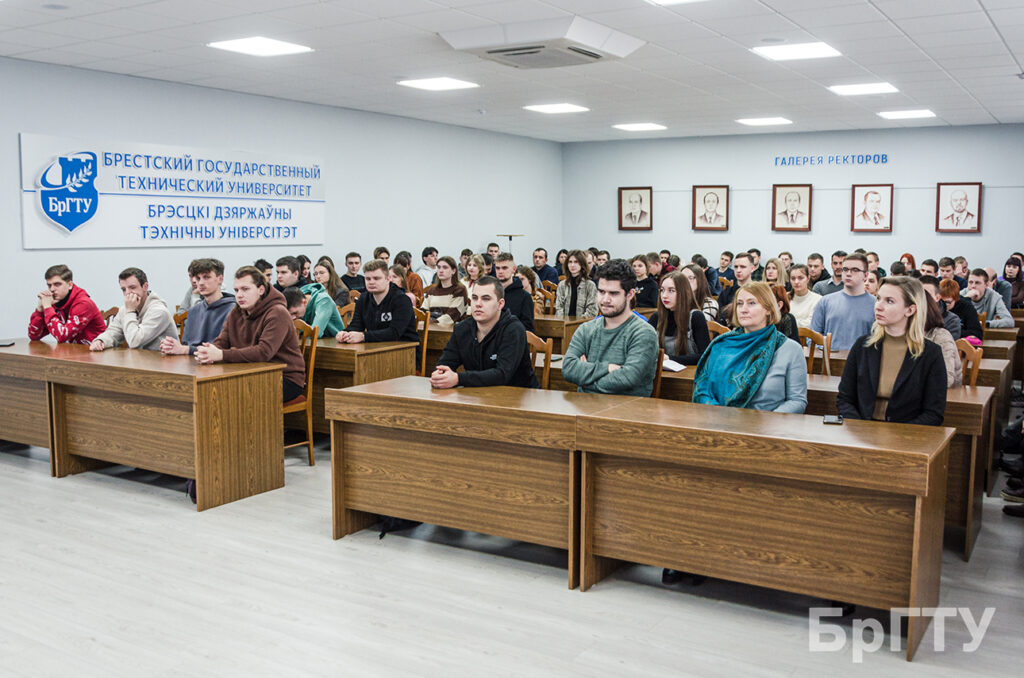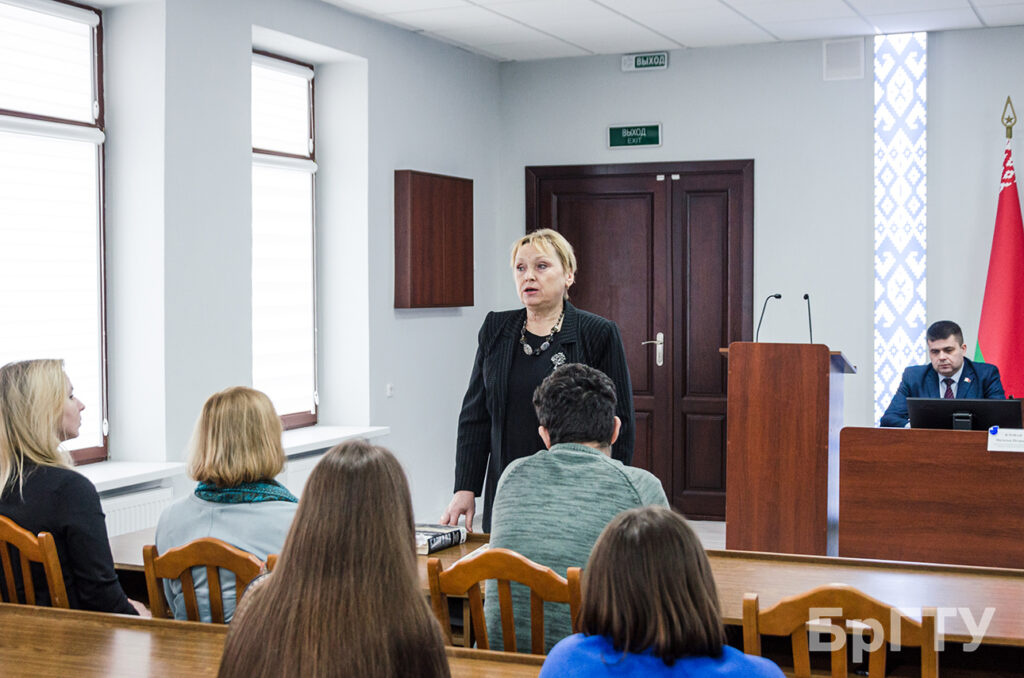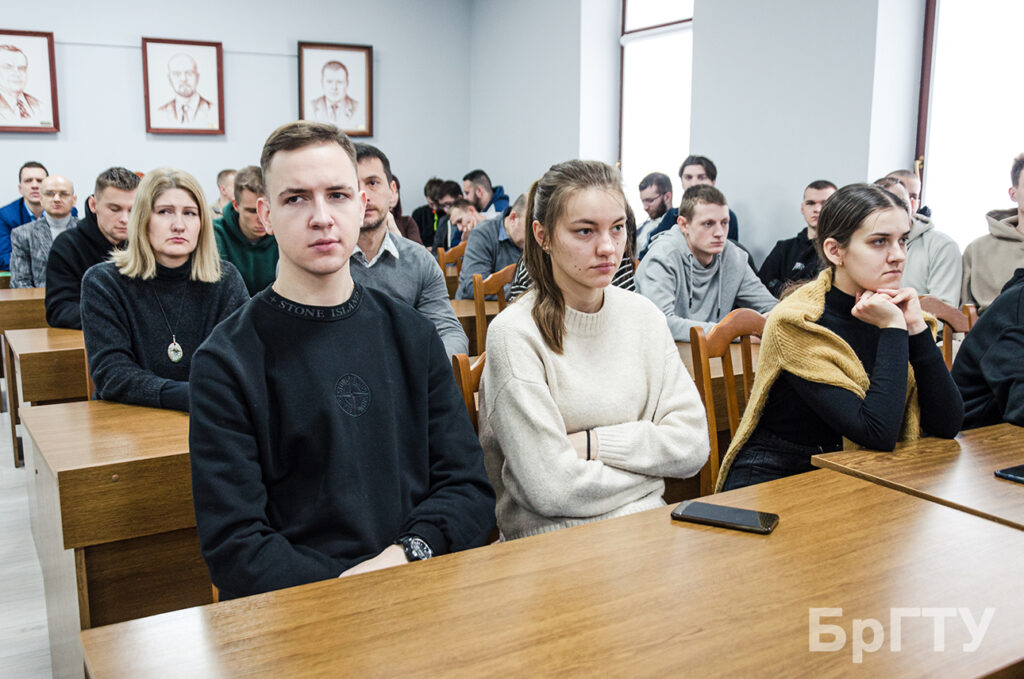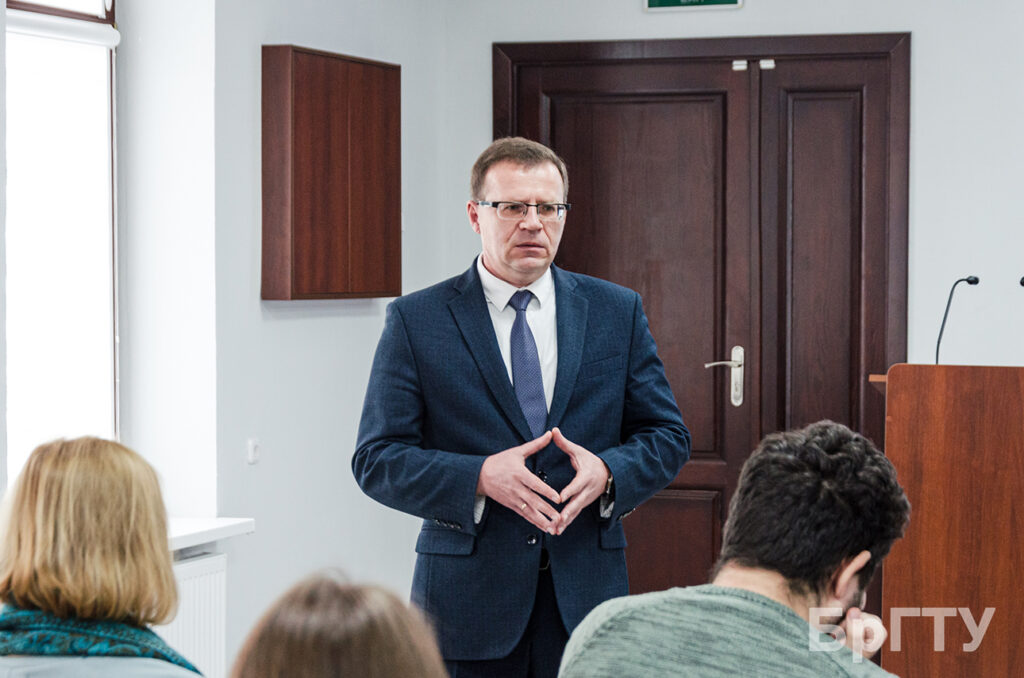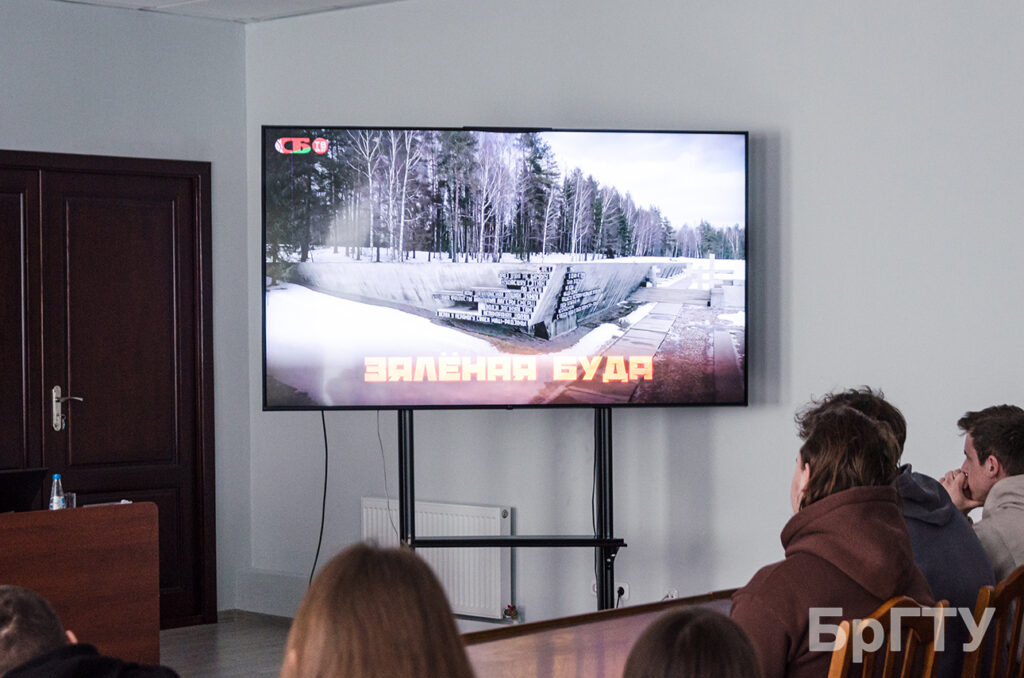On January 23, 2024, the “Diary of Memories” — a meeting on the occasion of the International Day of Remembrance of the Holocaust Victims was held at the Brest State Technical University with the participation of students. Invited speakers led by Rector Sergei Antonovich Kasperovich were Anna Tarasovna Onishchuk, Chairman of the Brest City Council of Veterans; Gleb Andreevich Melnikov, Assistant Prosecutor of the city of Brest; Eduard Nikolaevich Severin, Head of the Brest branch of the Belarusian Institute of Strategic Studies, candidate of political sciences.
The purpose of the meeting was informing students about the genocide of the Belarusian people and restoring historical justice.
BrSTU Rector Sergei Antonovich Kasperovich delivered a welcoming speech and noted the importance of preserving historical memory in the patriotic education of youth.
In order to provide legal education G.A. Melnikov developed the topic of genocide during the Great Patriotic War and the crimes of the Nazi invaders and their accomplices on the territory of Belarus. He noted that such crimes have no statute of limitations; we need to continue to talk about the period of the Great Patriotic War, because discussion can prevent such terrible events in the future.
Onishchuk A.T. and Severin E.N. in their speech drew attention to important memorial dates associated with the memory of the heroism and sacrifices of the Soviet people in the fight against the Nazi invaders. Students were informed about previously known and newly discovered facts of genocide on the territory of the city of Brest and the Brest region. Students were shown the burial places of victims of genocide during the Great Patriotic War.
The speakers noted the fact that a criminal case on the fact of genocide of the population of Belarus during the Great Patriotic War was opened by the General Prosecutor’s Office of the Republic of Belarus. During the investigation, specific individuals were identified from among the German invaders and their accomplices who managed to avoid responsibility for the murder of civilians, abuse and torture in concentration camps and ghettos, and the mass abduction of the civilian population into German slavery.
In addition, the issue of preventing offenses in the field of information security, preventing the dissemination of materials recognized as extremist and other illegal actions was raised.
As part of the meeting, students were shown the documentary film “Sisters of Khatyn.”
